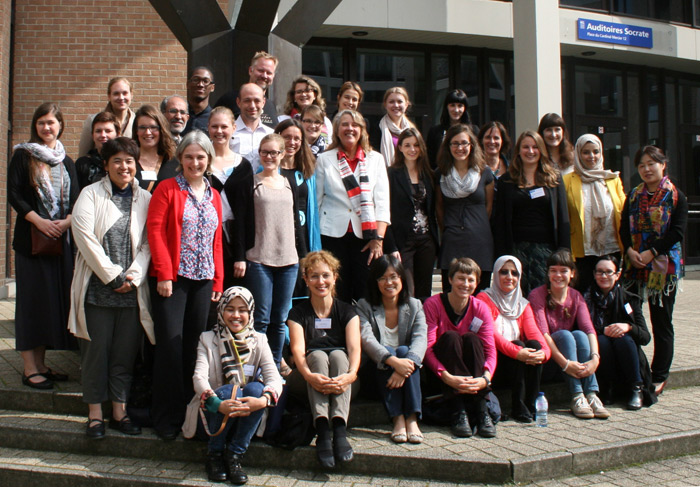- A
- A
- A
- ABC
- ABC
- ABC
- А
- А
- А
- А
- А
- HSE University
- Faculties
- Faculty of Humanities
- School of Philological Studies
- News
- HSE Student at the International Research Seminar at Université Catholique de Louvain
 Lower Tanana Dene Dictionary Paperback
Lower Tanana Dene Dictionary Paperback
Kari J., Bergelson M.
Fairbanks: Alaska Native Language Center, 2024.
Zyryanov A., Buivolova O., Dragoy O. et al.
Cerebral Cortex. 2025. Vol. 35. No. 8.
Tuzhik O., Khanova A., Kudryavtsev S. et al.
In bk.: 12th Novi Sad workshop on Psycholinguistic, neurolinguistic and clinical linguistic research. Novi Sad: Faculty of Philosophy, University of Novi Sad, 2025. P. 26-28.
Kuznetsov Egor.
Linguistics. WP BRP. НИУ ВШЭ, 2023. No. 113.

HSE Student at the International Research Seminar at Université Catholique de Louvain
Learner corpus is made up of texts created by those who learn a particular language, but who are not native speakers. Usually specialists in second language acquisition describe the way a particular person learns a foreign language. Learner corpus helps analyze this process from different points of view and determines the patterns of learning while examining voluminous materials. These materials help compile grammar exercises based on corpus data.
The programme of the seminar included:
- a colloquium, during which each participant presented his or her project;
- lectures on learner corpus research methods, sources of errors, phraseology and grammatical structures in the texts of foreign language learners;
- individual interviews with recognized experts in linguistics;
- workshops on creating corpora and error markup.
At the colloquium Elizaveta presented a corpus essay in English, written by the students. It aroused great interest in the audience, and she received many valuable tips and advice on how to improve and develop the project.
The event helped young researchers gain new ideas and find out about the latest trends in learner corpus research.

- About
- About
- Key Figures & Facts
- Sustainability at HSE University
- Faculties & Departments
- International Partnerships
- Faculty & Staff
- HSE Buildings
- Public Enquiries
- Studies
- Admissions
- Programme Catalogue
- Undergraduate
- Graduate
- Exchange Programmes
- Summer Schools
- Semester in Moscow
- Business Internship
-
https://elearning.hse.ru/en/mooc/
Massive Open Online Courses
-
https://www.hse.ru/en/visual/
HSE Site for the Visually Impaired
-
http://5top100.com/
Russian Academic Excellence Project 5-100
- © HSE University 1993–2025 Contacts Copyright Privacy Policy Site Map
- Edit